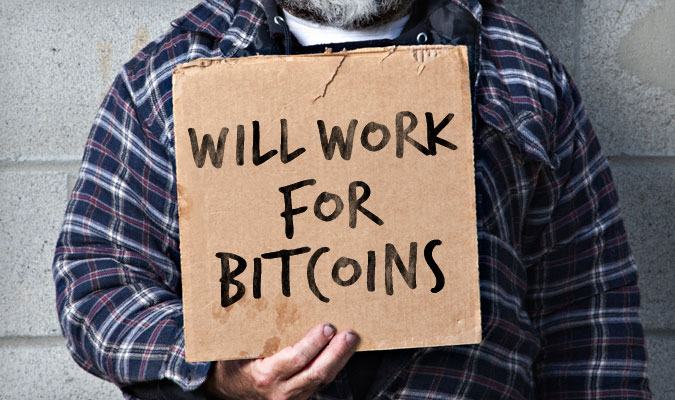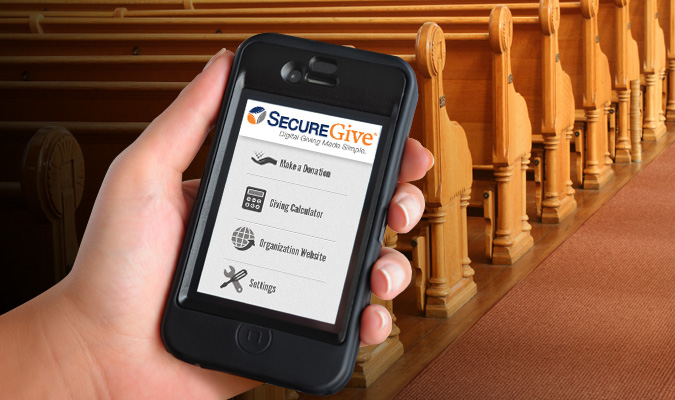8 Ways the Death of Cash Will Change Your Life
That feeling of cold, hard cash in your pocket is doomed. Money, in the physical form that we know and love, is rapidly dying. In its place, credit and debit cards — and a host of newer technologies, such as smartphone-based payments and NFC transactions — are increasingly dominating our purchases. Javelin Strategy & Research estimates that by 2017, only 23 percent of point-of-sale transactions will involve cash, down from 27 percent in 2011. More than half of consumers polled by British discount website MyVoucherCodes.co.uk said they expect to see the complete demise of all physical currency by 2030.
Cash has hit the downward spiral, but what is it taking with it? While we mourn the death of the greenback and the nickel, let’s consider the collateral damage — the unintended and unconsidered potential consequences of a world with no physical money.
Press here to tip
With cash gone, the tip jar as we know it soon follows suit. No more dropping some change, or a buck, as a tribute to your barista. If you want to tip someone, it will have to be digitally — a big hassle for a low-value purchase and one that will likely be completed with decreasing regularity. The result: As tips disappear, wages will (finally) have to pick up the financial slack that tipping once achieved. Those costs are passed on to consumers, so menu prices will rise accordingly.
While enterprising buyers may still decide to tip via NFC tag ("Swipe here to tip your server!") or by adding a buck to their smartphone bill, the more likely scenario is a food-service industry that begins to resemble Europe's: Tips eventually become no longer expected, and service gets increasingly lousy — unless you can actually convince people to use the swipe-to-tip DipJar system. Today, DipJars can be found in stores such as Oren’s Daily Roast, where a preset $1 is charged to your credit card when you swipe it.
MORE: 5 Apps That Help You Earn Extra Money
The end of panhandling
Sign up to receive The Snapshot, a free special dispatch from Laptop Mag, in your inbox.
With no change to toss, begging essentially becomes impractical, if not impossible. As panhandlers disappear, so do related activities that rely on petty cash: Sidewalk junk sales, window cleanings at stop lights and musical busking on subway platforms all vanish. The National Coalition for the Homeless says the typical panhandler works one or two three-hour shifts per day, making an average of $31.50 per shift. Based on the number of homeless people on the streets, that would be more than $100 million lost annually if panhandling ceases to exist.
This causes the urban commute to turn into a strangely silent and more orderly affair — but the chaos merely moves elsewhere in the system. Shelters and soup kitchens become more crowded than ever, and municipal budgets are strained by the cost of extra services they have to provide to pick up the slack once provided by impromptu giving.
Down and out in da club
Nightclubs and other afterhours endeavors tend to depend on the flash of cash, but without Benjamins to wave around, what's a thirsty clubgoer to do? Venues that openly thrive on the lack of a paper trail — like "exotic" live-entertainment clubs — will be the most hard-pressed, forcing entertainers to either strap card readers to their ankles or compel the development of ad hoc, alternate currencies. Perhaps you'll buy tokens at the front desk, and then slip them into each performer's fanny pack. Or maybe you'll "make it rain" with a shower of RFID-enabled plastic discs.
In New York City’s Times Square FlashDancers, the alternate currency is called "Dance Dollars." One Dance Dollar buys one lap dance and costs $23; there’s a three Dance Dollar minimum. Sadly, your dancer will only get about $16 of that tip.
MORE: Top 10 iPhone 5 Wallet Cases
Holdups and muggings take a new direction
A thug's barked order to "Gimme your money" takes on a new meaning, as petty-cash thefts become a thing of the past. Instead, device theft explodes. After all, your phone is worth much more to a mugger if you can actually use it to buy things. Hostage-style crimes — where the victim is kidnapped, forced to divulge his phone's passwords, and then dropped off in the boonies where he can't call the police — become a common M.O. for getting away with a few thousand dollars in purchases before the crime can be reported.
Card skimmers, RFID scams and NFC hacks become epidemic, while bank robberies come to a complete halt. In Sweden, one of the most cash-avoiding countries in the world now, bank robberies fell 85 percent between 2008 and 2011. Meanwhile, in New York City, the term "Apple picking" is now used to describe the 40 percent rise in iDevice thefts in the metropolis.
Spiritual goes digital
It's difficult to drop money on the church-collection plate if there's no cash to give. What, you're going to write a check? Churches find they have to get creative: Kiosks in the narthex, email-based fundraising drives, auto-tithing options and RFID-enabled collection plates are just a sampling of technologies that are likely to be tinkered with. Some progressive organizations are already on top of it, courtesy of such companies as Easy Tithe and SecureGive. Devoted worshippers won't have a problem with the switch, but casual churchgoers may be left behind.
A bigger challenge comes to more casual charity activities — religious and otherwise. Will anyone really pull out a credit card to deal with a 50-cent bake-sale purchase or a candy bar being sold door-to-door to benefit a school program? In response, fundraising shies away from small-scale efforts and trends upmarket, where big-ticket items, like houses or cars, are raffled off, with tickets running a much larger (and more efficient) $100 and up. Meanwhile, bid a sad farewell to those ringing bells at Christmas, as the Salvation Army no longer has any change to collect. Last year, the charity began experimenting with taking donations via Square mobile scanners. UNICEF is also making the shift to cash-free donations, outfitting its orange boxes via scannable Microsoft Tag codes that accept smartphone-based donations.
Vegas, baby?
The days of dropping a stack of twenties on the blackjack table are over, and even the neighborhood poker game has to change. This is especially problematic for casual gambling endeavors, until mobile payment systems, like smartphone-attached credit-card readers, become acceptable to the masses. Vegas embraces the change. Gaming tables are outfit with credit-card swipers and NFC readers placed directly at each seat, so there's no waiting for the dealer to count your bills and no need for a cashier. This makes sense, because most slot machines and video-poker terminals —which dispensed annoying coins years ago — now dispense IOUs redeemable at the cashier.
MORE: Top 5 NFC Apps for Android Phones
In the casino of the future, new games will be played using nothing more than a smartphone app — though this should lead to considerable wrangling over their legality. The ease of buying chips leads to increased difficulties with problem gamblers, and credit-card companies throttle the number of chips you can buy in a day. Casual and neighborhood games take a darker turn, though, as those uninterested in adding a paper trail to their Final Four bracket pool raise the stakes. Reports of Russian Roulette making a twisted comeback begin to pepper the news.
Death and taxes
Your ability to pay "under the table" — for anything — comes to an end. Now, there's a digital record for everything you buy and everything you earn — an advance the IRS particularly appreciates. Cheating on your taxes becomes infinitely harder, while audits become considerably simpler, since there's no longer anywhere to hide, no gray areas where money can be socked away. Eventually, the IRS evolves to make most tax collection a completely automated affair. Against the stern warnings of privacy mavens, a cash-strapped Treasury allows the IRS to monitor all financial transactions and to apply and collect tax on the spot, charging the buyer or seller the appropriate fee right at the point of sale. It's all just another "convenience" that soon becomes a grudgingly accepted part of your digital universe.
The idea is not that far-fetched. Cash has long been used to hide shady deals from tax-hungry governments all over the world. Italy’s prime minister recently put forward measures to encourage people to avoid using cash for transactions of more than 1,000 euros.
ATMs as eyesore
With cash no longer king, once-ubiquitous ATMs become little more than blights on the urban landscape. At first, ATMs will become more multifunctional — which is already happening, according to the ATM Industry Association. The machines become stations for paying routine bills, reloading prepaid cards and purchasing tickets of all sorts. Over time, they go the way of payphones, slowly being dismantled or falling into disrepair, covered from top to bottom with stickers and graffiti. As they are eventually removed altogether, the gaping alcoves that are left behind in the buildings they once occupied are converted to a new use — perhaps quick-charge stations for mobile devices. Decades later, the decaying ATM plays a central role in a trilogy of sequels to “The Matrix.”
And what of The Franklin Mint?
Commemorative or collectable coins become an increasingly confusing idea to a generation that has never actually used coins. These products vanish over time, as do U.S. Mint-driven programs, such as the National Parks Quarters series, which devolve into dusty novelty collections that are passed around at estate sales and bestowed in wills to utterly bored heirs alongside massive books of stamps (which are, of course, equally mysterious and long since extinct). As for The Franklin Mint, it actually thrives, doubling down instead on collectible plates and commemorative teaspoons, which become beloved by millions of people who are looking for a connection to the past. Also popular: Collectible "bitcoins."


